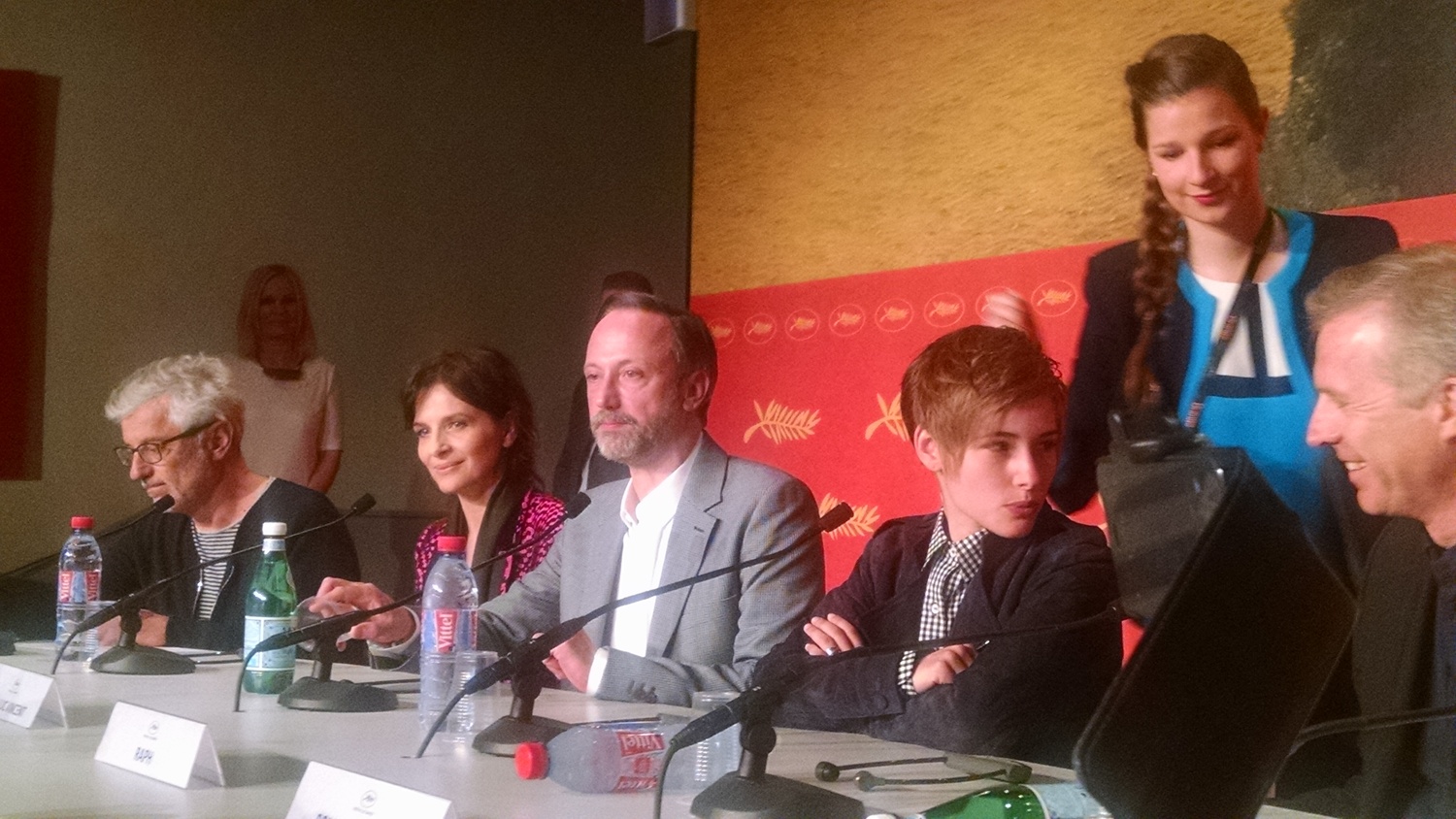
News
Cambridge Residents Slam Council Proposal to Delay Bike Lane Construction

News
‘Gender-Affirming Slay Fest’: Harvard College QSA Hosts Annual Queer Prom

News
‘Not Being Nerds’: Harvard Students Dance to Tinashe at Yardfest

News
Wrongful Death Trial Against CAMHS Employee Over 2015 Student Suicide To Begin Tuesday

News
Cornel West, Harvard Affiliates Call for University to Divest from ‘Israeli Apartheid’ at Rally
Cannes Daily Round-Up: Day 3
Tianxing V. Lan ’18:
Films at Cannes are divided into several categories; some even have their own subcategories. The most influential of these is “Official Selection,” which includes “in-competition” films—the films running for the Palme d’Or and other awards given at the end of the festival. While these are usually the most high-profile and high-quality films at Cannes, they make up just a small part of the official selection. “Un Certain Regard (A Certain Regard)” is intended as a stage for rising filmmakers, while “Out of Competition” is for excellent films that do not necessarily meet the festival’s typical taste—for instance, last year’s “Mad Max” was too much a blockbuster for the art-house-oriented Cannes competition but was granted a place in Le Palais thanks to the category. A particular filmmaker often associated with “Out of Competition” is Woody Allen. Despite the public love affair between Allen and France, the director is opposed to the idea of a group of people deciding whether certain films are good or bad; he therefore insists that his films always be shown out of competition, including last year’s “Irrational Man” and this year’s “Café Society.” Partly for this reason, Allen holds the current record of having as many as three opening night films (which are usually out of competition) at Cannes.
For the last two days, Steven and I have been focusing on in-competition films, but starting from now we will also search for gems in other units. Today we watched both the highly anticipated (among French cinephiles, at least) in-competition film “Ma Loute (Slack Bay)” and the Un Certain Regard piece “(M)uchenik (English: The Student),” about which Steven and I knew nothing before walking in. Directed by Bruno Dumont, whose mini-series “P'tit Quinquin” stunned art-house cinema circles, “Slack Bay” features probably the strangest performances from some of the biggest stars in French cinema, including Juliette Binoche and Fabrice Luchini, and had its own press conference immediately after the screening (which I went to, and where I was able to get Binoche's autograph). On the other hand, the director and cast members of “(M)uchenik” are internationally unknown, and the film is more of a traditional drama than the crazy auteur-ish tale that “Slack Bay” is. Both, however, possess great qualities.
Read more in Steven’s review of “Slack Bay”: “Stylish, hilarious and undeniably absurd, the newest entry in Bruno Dumont’s filmography is a fun-filled, laugh-out-loud romp—even when it’s not quite clear what’s happening.”

Read more in Steven’s review of “Uchenik (The Student)”: "In 'Uchenik (The Student),' Russian director Kirill Serebrennikov paints a haunting picture of a student’s violent descent into religious fanaticism and the horrific consequences that follow. To call the film an impeachment of religion or even religious fervor, however, would not be entirely accurate. 'The Student' is not a cautionary tale against piety—it is an admonition of obsession, and a powerful one at that."
As I return to my apartment, I read from Twitter that the other film in “Un Certain Regard” today, “La Danseuse” (in which Lily-Rose Depp made her acting debut), received overwhelming critical acclaim, as did the Peruvian biopic “Neruda” in La Quinzaine des Réalisateurs (Directors’ Fortnight) and Cambodian teen movie “Diamond Island” in Semaine de la Critique (Critics’ Week). These two so-called “parallel units” were first established by groups of directors and film critics (hence the names) to counter the tastes of the official selection and to aim to find good films overlooked by the festival’s juries. With such checks and balances within the festival, it is almost guaranteed that Cannes is able to showcase the best of cinema in any given year. The tradeoff, though, is that sometimes there are just too many good films to see. Alas, tomorrow Steven and I will try to catch up on the good films that we missed today while trying to keep up with all the new ones.
Want to keep up with breaking news? Subscribe to our email newsletter.

